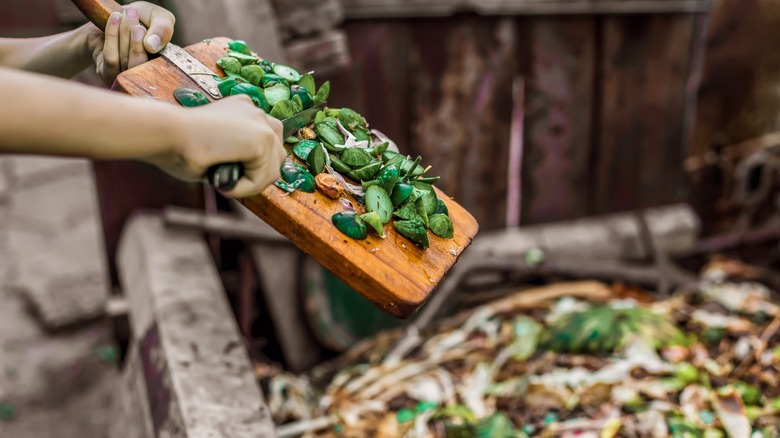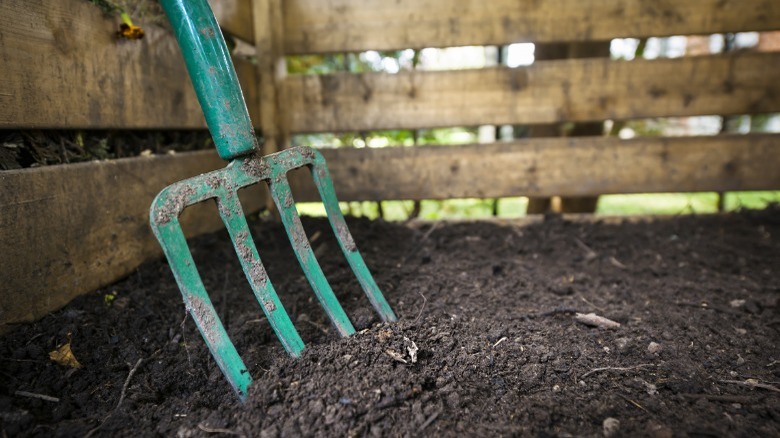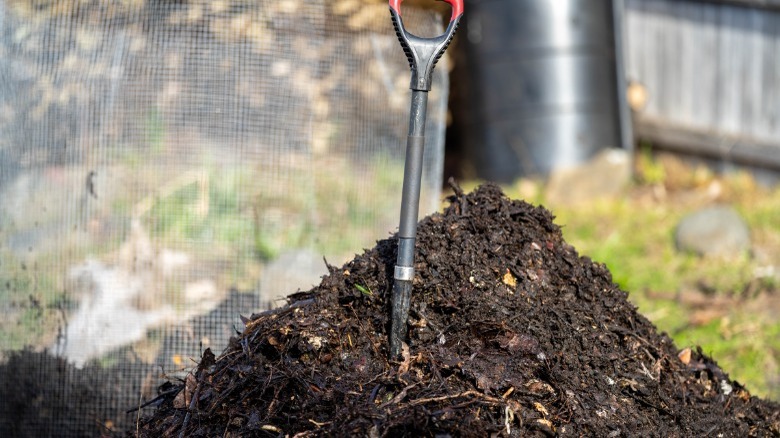Why Turning Your Compost Pile Is A Must
If you're new to composting, one thing you absolutely must do is turn it periodically. The idea is to take the outside edges and "turn" them toward the middle, sort of like folding in an ingredient when mixing dough. This will help keep the smell down and is necessary for completing the composting process. The main thing turning your compost controls is aeration, which is essential for the microbial activity you need for efficient decomposition. If you don't turn it, the process will nearly halt completely.
Unfortunately, there's no magical secret shortcut or any other way to speed up the natural progression of composting. And compost is an essential component of organic gardening, but necessary for any garden. The way the composting process works is it gets hottest in the middle, and this is where decomposition is most active. Oxygen is used more quickly in the center, where it's the hottest and has the highest activity, so oxygen needs replenishment. This is accomplished by turning the soil, so you see why it's a must!
What turning the compost does
If an anaerobic atmosphere occurs in a compost pile, decomposition practically comes to a halt. Turning your compost helps prevent this and more from happening. One of these is the compaction of particles, and folding the compost in creates space for oxygen. It also helps to drain excess moisture from the pockets that need to be filled with oxygen instead.
Different substances decompose at different rates, but microbes accelerate the whole thing. Some of these microbes use nutrients and oxygen at different rates than others. Turning the compost pile mixes up the microbes to redistribute them more evenly. It keeps everything moving and brings matter from the outer edges to the heat in the center. Doing this regularly ensures an equal-opportunity environment for all decomposing matter. Finally, it prevents overheating from everything staying in one spot. When the heat is evenly distributed, the temperature remains constant for optimal decomposition.
How often to turn it and other tips
When it comes to how often you should turn it, some depend on how thick the layers of matter are, as well as what they consist of. Assuming you're turning with a pitchfork or a shovel, the general advice is to turn your compost pile every two to four weeks for the best results. You want to give it at least two weeks to allow it to heat back up again. You also want to be sure you have a good balance of green and brown matter in the pile. Green material produces nitrogen, while brown material produces carbon. This will keep the process equally balanced, keeping the decomposition rate at an optimum level.
Additionally, the ideal size of the compost pile should be between 3 feet by 3 feet and 5 feet by 5 feet. The right size is essential so that it's large enough to produce enough heat but not so big that it becomes difficult to turn adequately. Keep the pieces of organic matter as small as possible so they break down quickly. Last, it's important to keep the pile frequently turned during warmer temperatures, and you'll need to stop turning it when temperatures cool down to keep the heat inside. Follow these tips for successful composting and happy, healthy gardening.


